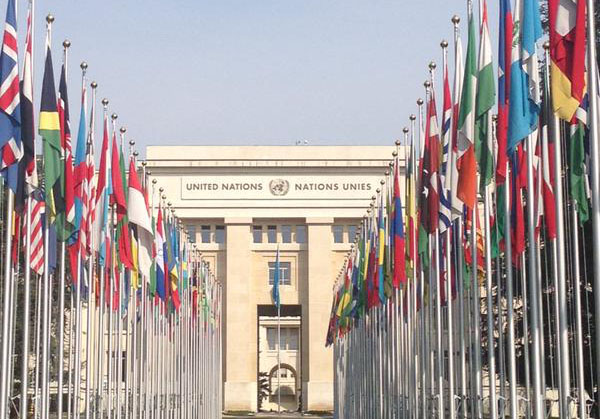
Jul 27, 2017 | News
Pakistani authorities must implement the United Nations Human Rights Committee recommendations to ensure compliance with Pakistan’s human rights obligations under the International Covenant on Civil and Political Rights (ICCPR), the ICJ said today.
The Human Rights Committee, the treaty-monitoring body that oversees countries’ implementation of and compliance with the ICCPR, reviewed for the first time Pakistan’s human rights record under the Covenant on 11 and 12 July.
It issued its “Concluding Observations”, along with its recommendations, today, on 27 July.
“While it is encouraging to see Pakistan’s increased engagement with United Nations human rights mechanisms in recent years, it is deeply worrying that since ratifying the ICCPR, Pakistan’s human rights situation has worsened in a number of aspects, including with the restoration of the death penalty and the introduction of military trials for civilians,” said Livio Zilli, ICJ’s Senior Legal Adviser and UN Representative.
“It is of the utmost importance for Pakistan to reverse this trend, and make sincere efforts to implement the recommendations made by the Committee,” added Zilli.
The Committee’s recommendations include:
- Ensure the National Commission for Human Rights is able to carry out its mandate independently and effectively;
- Reinstate the moratorium on the death penalty;
- Abolish mandatory death penalty and ensure the death penalty is provided only for the “most serious crimes” involving intentional killing;
- Criminalize enforced disappearance and put an end to the practice of enforced disappearance and secret detention;
- Ensure that all allegations of enforced disappearance and extrajudicial killings are promptly and thoroughly investigated; all perpetrators are prosecuted and punished with penalties commensurate with the gravity of crimes;
- Review legislation relating to the military courts with a view to abrogating their jurisdiction over civilians as well as their authority to impose the death penalty;
- Reform the proceedings of military courts and bring them into full conformity with Articles 14 and 15 of the Covenant to ensure a fair trial;
- Ensure that all elements of the crime of torture are prohibited in accordance with article 7 of the Covenant;
- Repeal all blasphemy laws or amend them in compliance with the strict requirements of the Covenant; and
- Review policies and legislation on registration of international NGOs, including the vague grounds on which registrations can be cancelled.
This is the first time Pakistan’s human rights record is being reviewed by the Human Rights Committee since Pakistan ratified the Covenant in 2010.
Contact:
Livio Zilli, ICJ Senior Legal Advisor and UN Representative (Geneva), e: livio.zilli(a)icj.org
Reema Omer, ICJ International Legal Adviser for Pakistan (Lahore), t: +923214968434; e: reema.omer(a)icj.org
Background:
Pakistan ratified the International Covenant on Civil and Political Rights (ICCPR) in June 2010.
Following ratification/accession, every state party to the ICCPR is required to submit an initial “state report” containing information on the implementation of each provision of the treaty.
Pakistan submitted its initial state report to the Human Rights Committee in October 2015.
In light of the information provided in the State report, as well as information received from civil society, the Human Rights Committee then prepared a List of Issues containing particular issues of concern to the Committee, and asking whatever questions it sees fit in light of those concerns.
The answers provided by the State party to these questions, as well as other information submitted by civil society and others formed the basis of the “review” of the State’s compliance with the treaty, which was carried out on 11 and 12 July by the Human Rights Committee.
During the review, the Committee met with Pakistan’s delegation, headed by Federal Minister for Human Rights, Senator Kamran Michael, who presented answers to the List of Issues and responded to the Committee’s questions.
The Committee’s Concluding Observations issued today are highly authoritative, and highlight the Committee’s concerns and make recommendations to the State on improving the implementation of the ICCPR.
The ICJ made submissions to the Human Rights Committee in relation to the formulation of List of Issues in 2016 and the Review in 2017.
In its submissions, the ICJ raised concern about the inadequate legal framework on torture and other ill-treatment; the continuing practice and impunity for enforced disappearances; the incompatibility of military trials of civilians with the right to a fair trial; the incompatibility of Pakistan’s blasphemy laws with the rights to freedom of religion and belief, expression and fair trial; and the vaguely defined INGO policy.
The Human Rights Committee picked up ICJ’s concerns as its principle matters of concern and recommendations in its Concluding Observations.
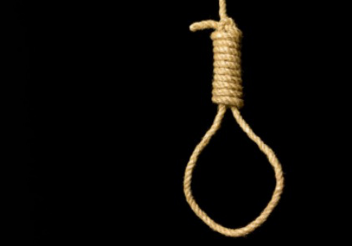
Mar 7, 2017 | News
The ICJ today condemned the move of the Philippines’ House of Representatives to reintroduce the death penalty for drug-related crimes.
The ICJ has called on the country’s Senate to block this serious threat to human rights.
Earlier today, the House of Representatives approved House Bill 4727 on third and final reading by 216 votes. 54 voted “no”, and one abstained. The bill as amended reinstates the death penalty for drug-related crimes, more than 10 years after the Philippines had legally abandoned executions.
The approved bill will be transmitted to the Senate, where it will go through the same procedure of three readings.
“The passage of the death penalty bill in the Philippine House of Representatives represents a turning point in the country, but one that is for the worse. It puts the Philippines in direct conflict with its international legal obligations,” said Emerlynne Gil, ICJ’s Senior International Legal Adviser for Southeast Asia.
“Now it’s up to the Philippine Senate to stop this terrible and unconscionable move and preserve the Philippines’ status as a regional leader against the death penalty,” Gil added.
Since 2007, the Philippines has been a Party to the Second Optional Protocol to the International Covenant on Civil and Political Rights (ICCPR), requiring all parties to abolish the death penalty in law and practice. Under the ICCPR and the Second Protocol, States are prohibited from bringing back the death penalty once it has been abolished in domestic laws.
“Passing this law will send a negative message to the international community that the Philippines is incapable of observing in good faith the international obligations it has expressly bound itself to,” Gil said.
Ever since it abolished the death penalty in 2006, the Philippines has been viewed by many observers as a regional and global leader on the drive to abolish capital punishment. Not only was it the very first Southeast Asian country to ratify the Second Optional Protocol to the ICCPR, it also played an instrumental role in advocating for the abolition of the death penalty worldwide.
Since 2007, the Philippines has consistently co-sponsored multiple UN General Assembly resolutions calling for a moratorium on the use of the death penalty with a view to its total abolition. These resolutions have been adopted with large majorities.
“The Duterte administration had already engaged in hundreds, if not thousands, of extrajudicial killings justified by unsubstantiated claims that such wholesale crimes will somehow respond to the country’s drug problem. The resumption of the death penalty compounds the horrors of this bloody campaign without any evidence whatsoever that this odious practice will in any way improve the alleged drug problem in the country,” Gil said.
Rather than the death penalty, studies have demonstrated that heightened enforcement efforts which increase the chances of actually being caught and punished are more effective in deterring criminal conduct.
The ICJ therefore calls on the Senate of the Philippines to reject in full the bill seeking to re-impose the death penalty in the country in accordance with the Philippines’ international obligations.
Background
The bill approved by the House of Representatives (Lower House) will be transmitted to the Senate (Upper House), where it will go through the same procedure of three readings.
If the bill is approved upon the third reading at the Senate without amendments, it will be presented to the President. The bill would become a law if and when it is signed by the President.
If, however, there are amendments on the bill at the Senate and the House of Representatives do not agree with these amendments, the differences would be settled by a Conference Committee of both Houses.
The recommendations of the Conference Committee would have to be approved by both Houses.
Contact
Ms. Emerlynne Gil, ICJ’s Senior International Legal Adviser, tel. no. +66 840 923 575, email: emerlynne.gil(a)icj.org
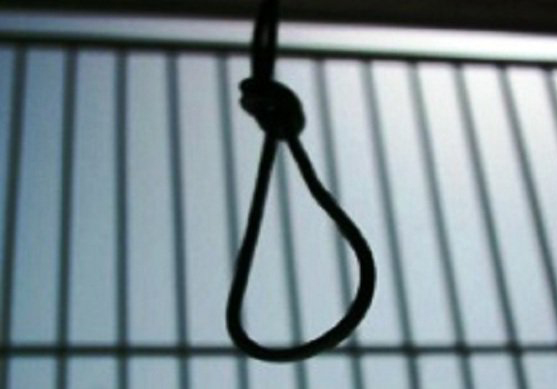
Mar 3, 2017 | News
The ICJ today urged the Philippine Congress to bring a halt to the Government’s attempt to bring back capital punishment.
The Philippine Congress’s attempt to restore this heinous practice is in blatant breach of its international legal obligations.
The ICJ condemned the approval on second reading of a bill to restore the death penalty by the Philippines’ House of Representatives on 1 March 2017 and called on legislators to vigorously oppose it and prevent it from being passed on final reading.
If adopted, the legislation will place the Philippines at odds with its legal obligation under international treaties to which it is party, the International Covenant on Civil and Political Rights (ICCPR) and its second Optional Protocol aiming at the abolition of the death penalty.
The ICJ also expressed concern at the manner in which the bill was effectively railroaded through the Philippine House of Representatives this week when it passed on second reading House Bill 4727, which seeks to reintroduce the death penalty for drug-related crimes.
House Bill 4727 will be put to a final vote on third reading next week. Nominal voting will be done on the third reading of the bill, which means that one by one, legislators would be called to explain their vote.
To marshal enough support for the bill, pro-death penalty legislators struck off all other crimes that were proposed in the original bill to be punishable by death, such as plunder, treason, and rape.
As it stands now, House Bill 4727 imposes capital punishment only on commission of drug-related crimes. Proponents of the bill claim that this is to support the President’s “war on drugs”.
The controversial measure was approved only eight session days after it reached the plenary for debates on 1 February 2017.
“It is obvious that proponents of State killing as means of “justice” were intent on rushing the passage of the death penalty bill by thwarting any substantial discussion thereon and by pressuring into silence those who oppose it,” said Emerlynne Gil, ICJ’s Senior International Legal Adviser for Southeast Asia.
A similar bill proposing to bring back the death penalty has been filed at the Philippine Senate. The Senate Committee on Justice and Human Rights conducted the first hearing on the bill last 7 February 2017. The Committee Chair, Senator Richard Gordon, indefinitely suspended the hearing until the Department of Justice is able to submit its opinion on the Philippines’ obligations under the ICCPR and its Second Optional Protocol.
“Until recently, the Philippines had set an example of regional and global best practice on the abolition of the death penalty. Reintroducing the death penalty will be an enormous move backward for the country,” Gil emphasized.
The move by the Philippines goes against a global trend towards abolition of the death penalty.
In December, the United Nations General Assembly voted by a large majority, for the sixth time, to adopt a resolution which called on states that have abolished the death penalty not to reintroduce it. It also called on all retentionist States to impose a moratorium on the death penalty with a view to abolition.
The ICJ opposes the death penalty in all cases and considers its use to be a violation of the right to life and freedom from cruel, inhuman, or degrading punishment.
Background
The leadership has sought to bypass normal procedures in hastily pushing through the bill seeking to re-impose the death penalty at various stages of the Philippine Congress.
9 November 2016: the Sub-Committee on Judicial Reforms began hearings on the bill seeking to re-impose the death penalty.
29 November 2016: the Sub-Committee approved the bill after it rushed through the proceedings, ignoring important questions from other lawmakers questioning the need for such legislation. The bill was thereafter referred to the Committee on Justice for further deliberation.
7 December 2016: the Committee on Justice approved the bill and moved that it be debated in plenary.
1 February 2017: the plenary debate on House Bill 4727 began.
8 February 2017: the Speaker of the House of Representatives, in a closed-door caucus among members of the supermajority, threatened that those who oppose the bill will be stripped of their leadership posts in Congress, i.e. committee chairmanships and Deputy Speakerships.
28 February 2017: amidst vehement objections from the opposition, the debate in plenary was ended. This was done despite the fact that only nine out of at least 50 members of Congress who had registered to interpellate the sponsors of the bill had been given the opportunity to do so.
1 March 2017: during the period of individual amendments, the sponsors of the bill invoked omnibus rejection to all proposed amendments, rejecting every proposal that was deemed inconsistent with the House leadership’s agenda of immediately passing the bill. Later that day, the period of individual amendments was ended, despite calls from legislators who wished to make further changes to the bill.
Contact
Ms. Emerlynne Gil, ICJ’s Senior International Legal Adviser, tel. no. +66 840923575, email: emerlynne.gil(a)icj.org
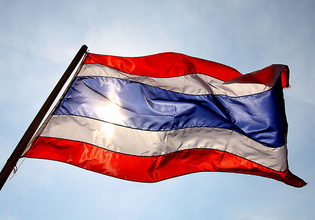
Feb 13, 2017 | Advocacy, Non-legal submissions
The ICJ and Thai Lawyers for Human Rights (TLHR) have made a submission to the UN Human Rights Committee in view of its forthcoming review of the implementation of the International Covenant on Civil and Political Rights by Thailand.
In their submission, the ICJ and TLHR have brought to the Committee’s attention their concerns in relation to the following issues:
- Constitutional and legal framework within which the Covenant is implemented;
- States of emergency;
- Right to life and prohibition of torture and cruel, inhuman or degrading treatment or punishment;
- Right to liberty and security of the person, treatment of persons deprived of their liberty, right to a fair trial and independence of judiciary; and
- Freedoms of expression and association and right to peaceful assembly.
Thailand-ICCPR Submission ICJ-TLHR-Advocacy-Non legal submissions-2017-ENG (Full text in PDF)
Thailand-ICCPR Submission ICJ-TLHR-Advocacy-Non legal submissions-2017-THA (Thai version, in PDF)
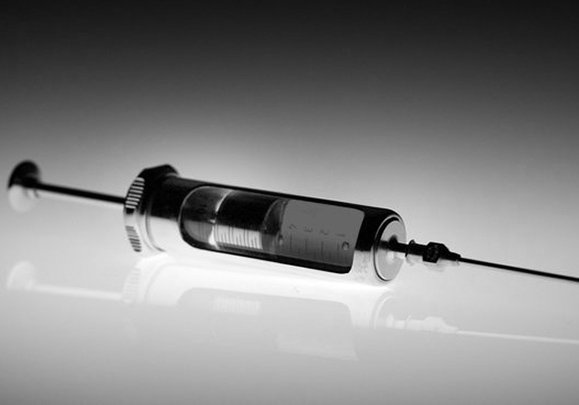
Feb 9, 2017 | Advocacy, News
The ICJ today welcomed the indefinite suspension of the hearings on the death penalty bills by the Philippine Senate’s Committee on Justice and Human Rights.
The Committee’s Chairman, Senator Richard Gordon, indicated the suspension was needed until the Department of Justice is able to submit its opinion on the Philippines’ obligations under the Second Optional Protocol to the International Covenant on Civil and Political Rights (ICCPR).
That instrument requires the Philippines to maintain its abolition.
“Abolitionist States may not return to the use of the death penalty generally under the ICCPR, and States that become party to the Second Optional Protocol assume very specific obligations to that effect,” said Emerlynne Gil, ICJ’s Senior International Legal Adviser for Southeast Asia. “There really is no inconsistency between the Second Optional Protocol and the Philippine Constitution.”
“As a general rule, the Philippine Constitution prohibits the death penalty except for compelling reasons involving heinous crimes. But in no way does it mandate that the death penalty be put into effect,” she added.
By ratifying the Second Optional Protocol, the Philippines has voluntarily chosen to be bound by an international obligation not to impose the death penalty – which it might otherwise have had the option to do under the Constitution.
As the ICJ explains in a memorandum on this issue, this is the very essence of treaty making.
“To announce long after ratification that a treaty is inconsistent with the Constitution and so not to be treated as binding, would call into question virtually every treaty to which Philippines is a party,” Gil said.
“This would contradict the most basic foundations of the international legal system and would lead other countries to view the Philippines as virtually incapable of making a reliable international legal agreement,” she added.
The ICJ emphasized that if the Philippines brings back the death penalty into its domestic laws, it would also be in violation of its obligations under the ICCPR, which effectively prohibits States from bringing back the death penalty once it has been abolished in domestic laws.
The Philippines cannot withdraw from Second Optional Protocol, which has no denunciation or withdrawal clause, the ICJ says.
The UN Human Rights Committee has explained that a denunciation clause was deliberately omitted because once the people are accorded the protection of the rights under the Second Optional Protocol, they shall not be deprived of such protection.
Background
On 7 February 2017, the Senate Committee on Justice and Human Rights held its first hearing on the proposed measure reintroducing the death penalty for illegal drugs and other crimes.
A similar bill to restore the death penalty is also currently being debated in plenary at the House of Representatives.
At the Senate hearing, senators opposing the proposed measure recalled that the Philippines is a State Party to the Second Optional Protocol, and thus, it is obliged not to execute any person within its jurisdiction.
Senator Richard Gordon, who chairs the Committee, thereafter, called for the indefinite suspension of the hearings on this matter until there could be clarity on the ramifications on the Philippines if it breaches its obligations under the Second Optional Protocol.
Contact
Emerlynne Gil, ICJ’s Senior International Legal Adviser, t +66 840923575 ; e: emerlynne.gil(a)icj.org
Philippines-Memo OP2 and Const-Advocacy-2017-ENG (Memo in English, PDF)









